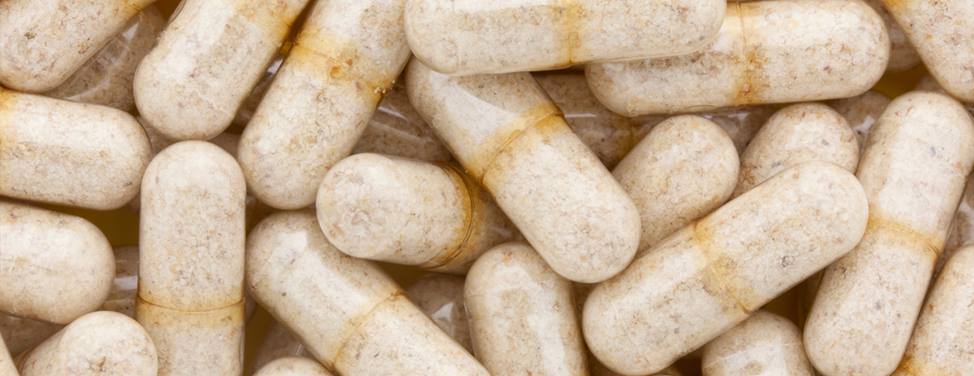
Anal Fissures
Anal fissures are cracks or tears in the skin around your anus. The crack in the skin exposes the muscle underneath, causing burning and sharp pain when you have a bowel movement. The pain can last for hours after the bowel movement and can be severe. These cracks are usually caused by the passage of a hard stool but also can be caused by persistent diarrhea.
Some people get fissures once in awhile and others can become chronic, lasting for years. The pain of a fissure may cause people to avoid having a bowel movement leading to chronic constipation. People are often embarrassed to see a doctor because of the location of the pain or they are afraid they will cause more pain. Fissures leave a "tag" of skin at the anal opening that people often mistake for a hemorrhoid.
Treatment
The fissure won't heal without good blood supply, not unlike any other wound on the body. Unfortunately, the spasm caused by the exposed muscle keeps blood away from the area, making it unlikely to heal.
- Hot baths Taking hot baths, with the water up as high as your tub allows, and relaxing the anal muscles will allow blood to flow into the area. Most people have trouble knowing how to relax the muscle without contracting it first. So, while you are in the tub, contract the muscle you use to stop having a bowel movement or to urinate. Then concentrate on relaxing that muscle. Do this every five minutes while you are in the tub. Take a bath three times a day and usually the fissure will heal within four weeks.
- Fiber If you have a hard bowel movement during this time, you can re-crack the skin. So it is very important to increase the amount of fiber in your diet. You can do this by eating more raw fruits and vegetables and by taking additional fiber like the products listed below. The soluble fiber found in the prepared fiber supplements will make your bowel movements soft and allow the fissure to heal.
- Fluids You also must drink adequate amounts of fluid, up to eight glasses a day.
- Surgery If your fissure does not heal in four weeks or you have had your fissure for a long time you may need surgery. The surgeon will cut the fissure open in a procedure called a sphincterotomy. This will hurt initially but the fissure will be gone and probably won't come back. This procedure is done on an outpatient basis. Small numbers of people who have had this operation may leak gas or stool.
High-Fiber Foods
In general, the average content of dietary fiber per serving of each of the food groups is as listed:
- Fruits — 1 to 2 grams
- Nuts — 6 to 8 grams
- Legumes, or beans — 4 to 5 grams
- Vegetables — 2 to 3 grams
- Refined grains — 2 to 3 grams
- Unrefined grains — label on package
Fiber Supplements
Caution:
- Do not take if you have a narrowing in your esophagus or in your intestines
- If you are a diabetic avoid the preparations with sugar
- If you need to watch your sodium intake avoid the psyllium preparation
- If you are taking Tetracycline avoid the polycarbophils
- If you have phenylketonuria avoid the preparations with Aspartame
- If you are taking Coumadin avoid the preparations with psyllium
Metamucil
- Dose: One teaspoon or one wafer equals 3 grams of insoluble fiber, 2 grams of soluble fiber. Take up to three times a day.
- Available forms: Flavored or non-flavored, sweetened or artificially sweetened, regular or smooth. It comes in wafers, including apple crisp and cinnamon spice.
- Form of fiber: Psyllium, 3.4 grams
Fiberall
- Dose: One tablespoon equals 2 grams soluble fiber and 1.5 grams of insoluble fiber.
- Available forms: Flavors include orange and tropical fruit as well as sugar-free.
Perdiem
- Dose: One teaspoon equals 4 grams of psyllium. Take up to 1 to 2 teaspoons 4 times a day.
- Available forms: Mint flavored
- Form of fiber: Psyllium 3.25 grams (stimulant)
Hydrocil Instant
- Dose: One teaspoon equals 3.5 grams of psyllium
- Form of fiber: Psyllium
Konsyl
- Dose: One teaspoon equals 6 grams of psyllium.
- Form of fiber: Psyllium
UniFiber
- Dose: One teaspoon equals 3 grams of cellulose.
- Form of fiber: Cellulose
Citrucel
- Dose: One tablespoon 1 to 3 times daily.
- Available forms: Orange flavored, sugar-free
- Form of fiber: Methylcellulose, powder equals 2 grams per tablespoon
FiberCon Caplets
- Dose: One caplet equals 500 mg of polycarbophil. Take 1 to 4 caplets a day.
UCSF Health medical specialists have reviewed this information. It is for educational purposes only and is not intended to replace the advice of your doctor or other health care provider. We encourage you to discuss any questions or concerns you may have with your provider.










